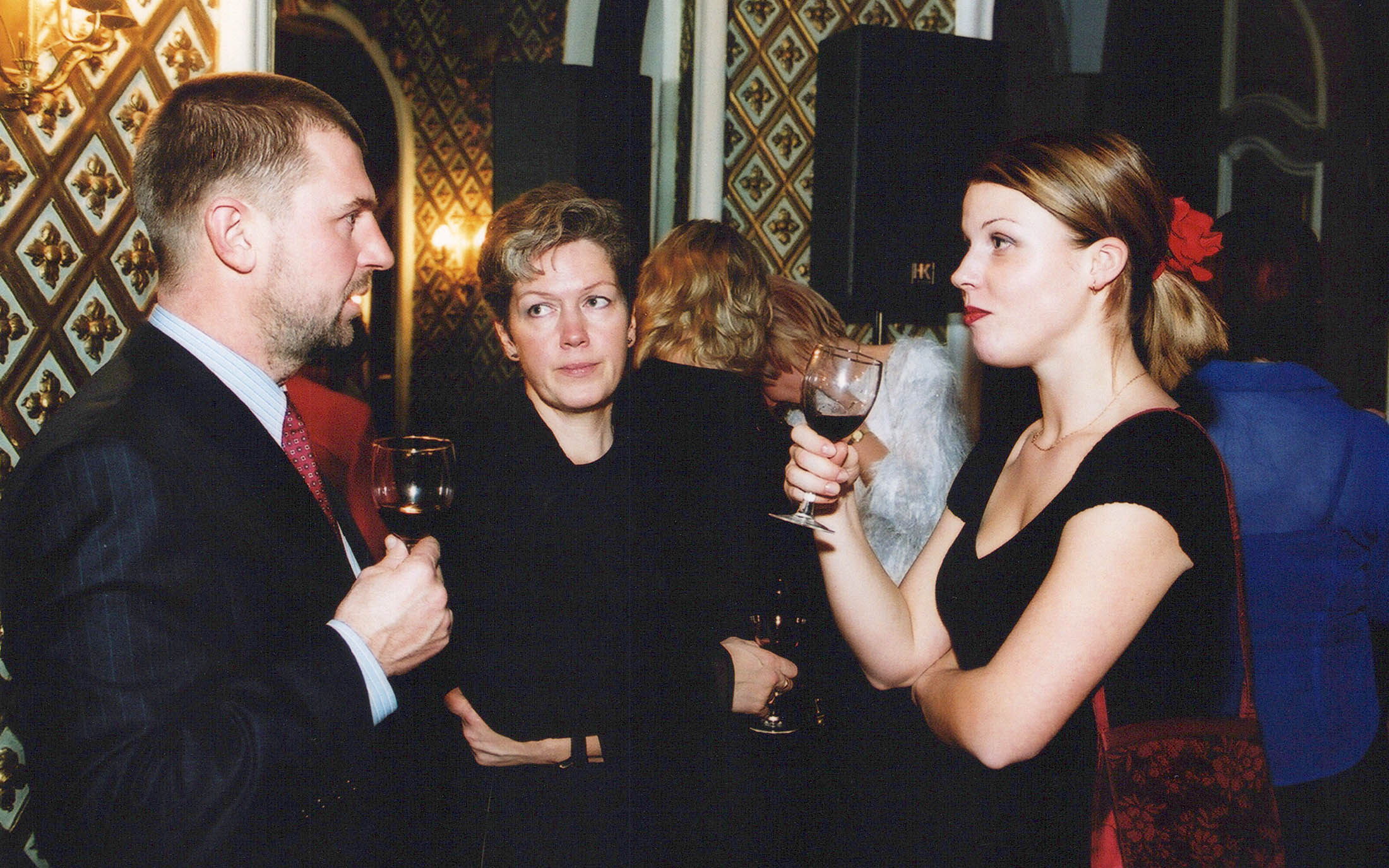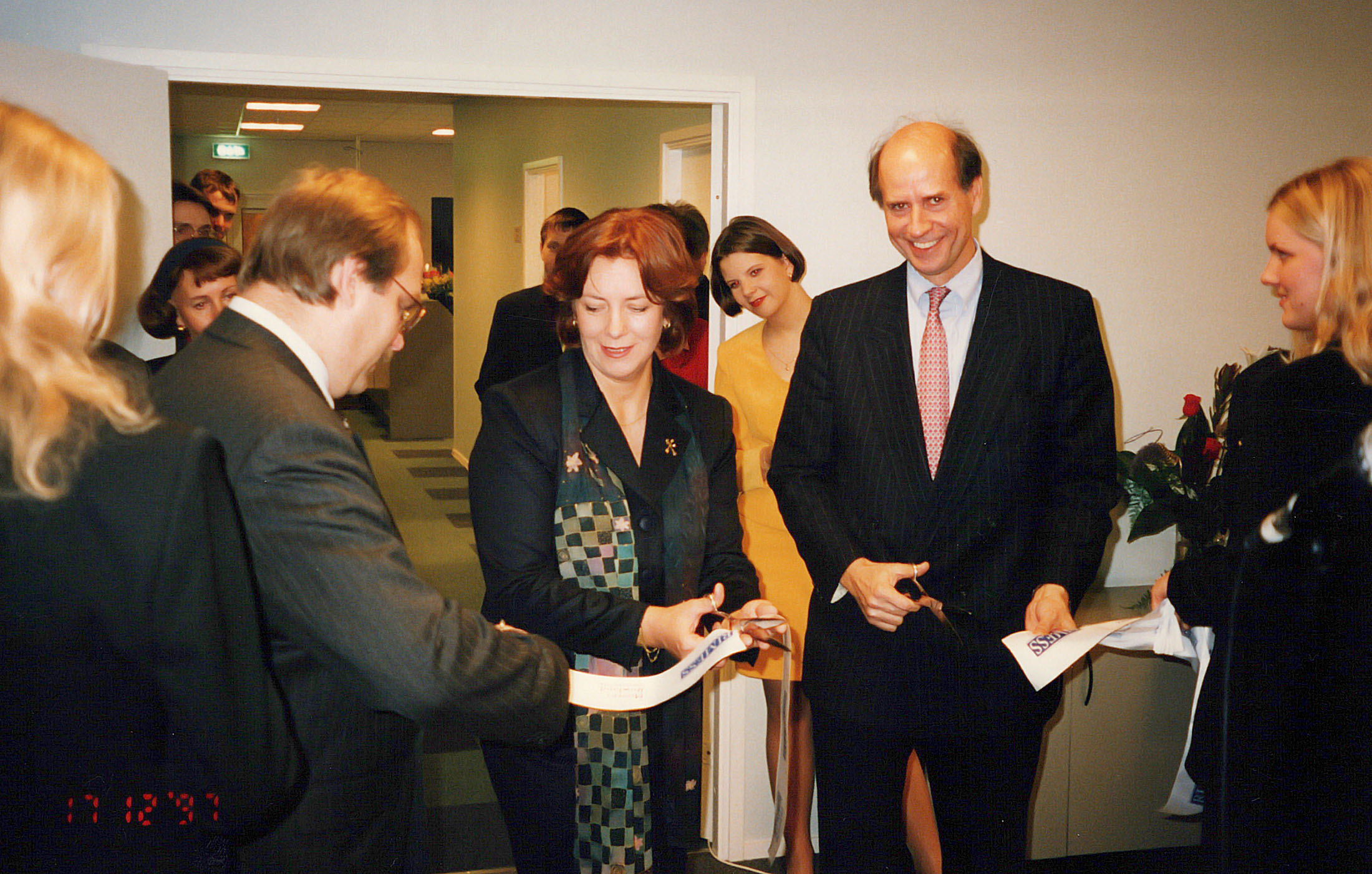Small but good
Going back to the beginning, the first year of Rimess’ life can be described as small but good. Nõmmiste still remembers the first client of Rimess, which opened its doors in a two-room, 19-square-metre office at Tartu maantee 6 in Tallinn, and the amount of the invoice written out to them. “It was HTH Köögid, for whom we prepared internal accounting procedures,” recalls Nõmmiste. “The invoice was for 500 kroons.” Gradually, more and more people became interested in accounting services. Rimess’ turnover in its first year of operations was 160,000 kroons. Almost all of the work was done by two people – in addition to Nõmmiste, his colleague from Agro, the accountant Mare Veeremaa, was on the payroll, and Veinberg also pitched in. Nõmmiste admits that finding clients was not easy in the early years. However, the owners’ wide circle of acquaintances and the fact that Nõmmiste was a respected lecturer on accounting training courses helped the firm.
The first client of Rimess was HTH Köögid. Hillar Kukk, CEO of the company, with his wife Kati (centre) at the 10th anniversary party of Rimess at the Russian Theatre.
In December 1992, the next step was taken to broaden the range of services: Veinberg and Nõmmiste passed their auditor exams and the go-ahead to provide auditing services was given. By 1994 the number of employees had increased to nine and turnover had increased as well: it grew from 660,000 kroons in 1993 to 1.8 million kroons in 1994, with the further increase in 1995 almost two and a half times higher than in the year before. At the same time, the firm moved to a larger office on Narva Road, in the building of the legendary Narva Café.
Veinberg, who fully committed herself to Rimess around 1994, believes there were several reasons for this rapid growth. “Firstly, lots of new companies were being set up and they needed accounting services and auditing,” she says. “So we were in the right place at the right time. Secondly, there was something about us that leant us a sense of credibility among our clients.”
The fact that in June 1994 the Riigikogu passed the Accounting Act, which came into force in 1995, also increased Rimess’ workload considerably, as accounting and the preparation of annual reports became more complex and in line with international standards. It also introduced a requirement to audit companies with an annual turnover of more than a million kroons, which was a real boost for auditors.
At the opening of the office at Uus-Tatari 25/Veerenni 13 in December 1997, Mati Nõmmiste (left), Eva Veinberg and Jérôme Adam, head of the European region of Moores Rowland International, cut the ribbon.
Nõmmiste admits that the owners of Rimess did not have clear objectives in the company’s first couple of years of operations. But with the company growing so quickly, it was time to start setting more specific goals for the future. Nõmmiste explains: “It was around 1994 when Eva and I started discussing Rimess’ goals. We thought our annual turnover could be a million dollars and that we should have 20-25 people, no more, because if we did, we wouldn’t be able to manage everything.”
But that million dollars proved to be a troublesome goal. “At the time we had this idea that the exchange rate was about 11 kroons to the dollar. But then the dollar started becoming more expensive, so our goal kept drifting further and further out of reach because of the exchange rate. In the end, we only achieved a million-dollar turnover at the beginning of the new century, when that goal wasn’t as important any more.”



